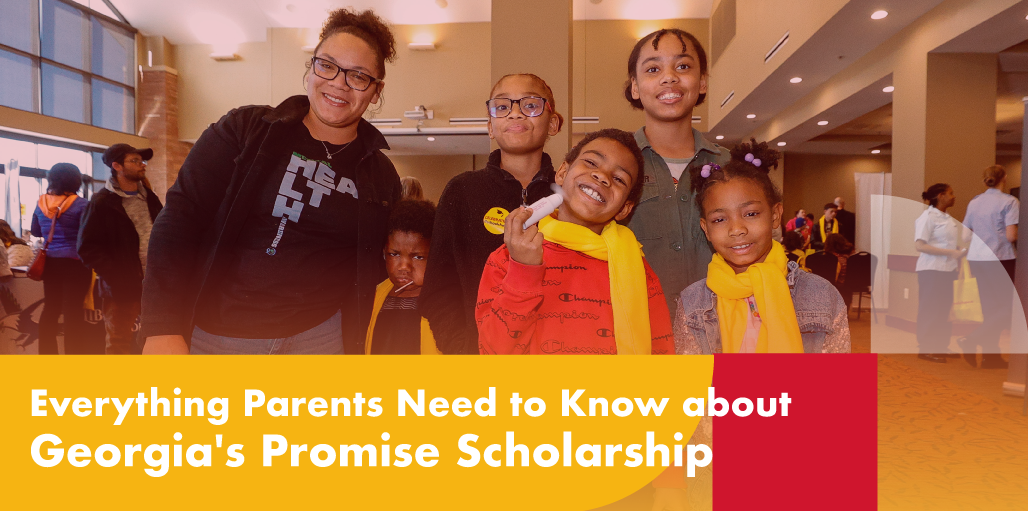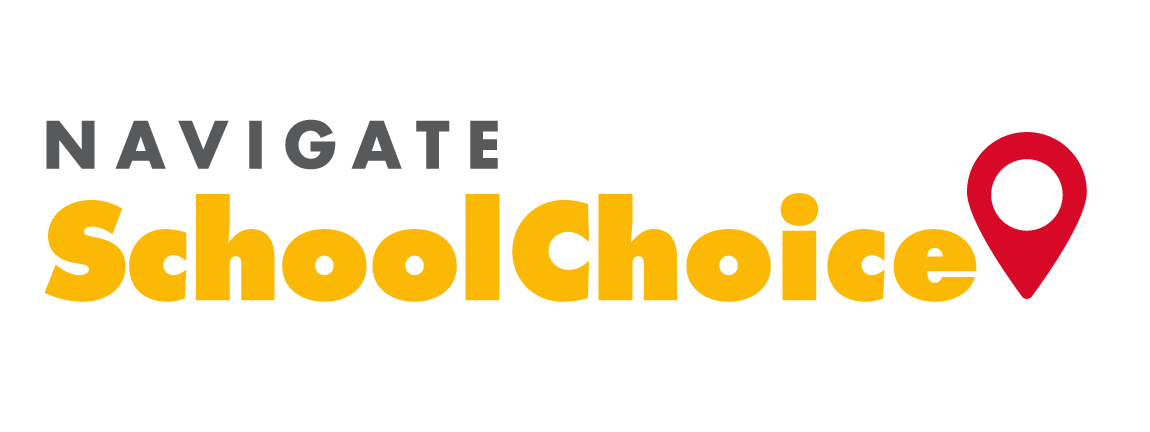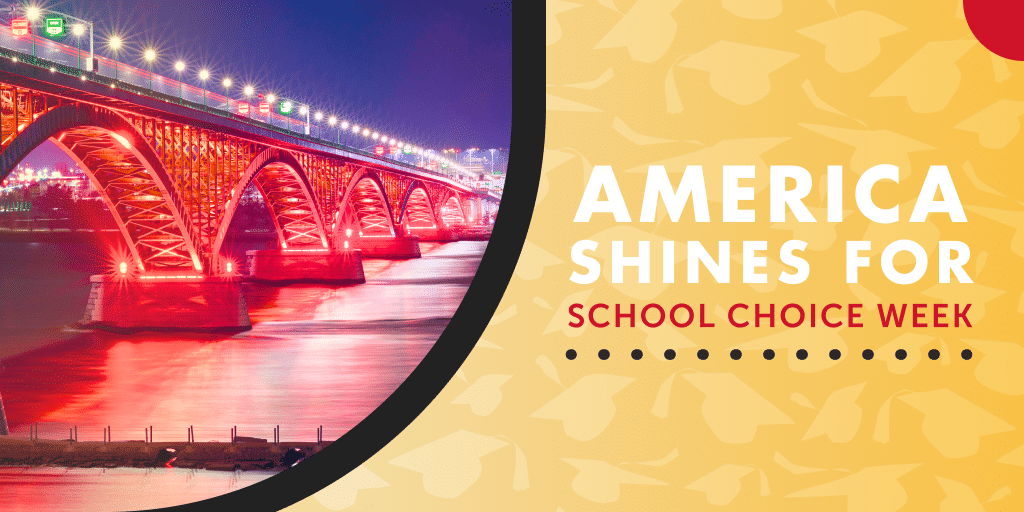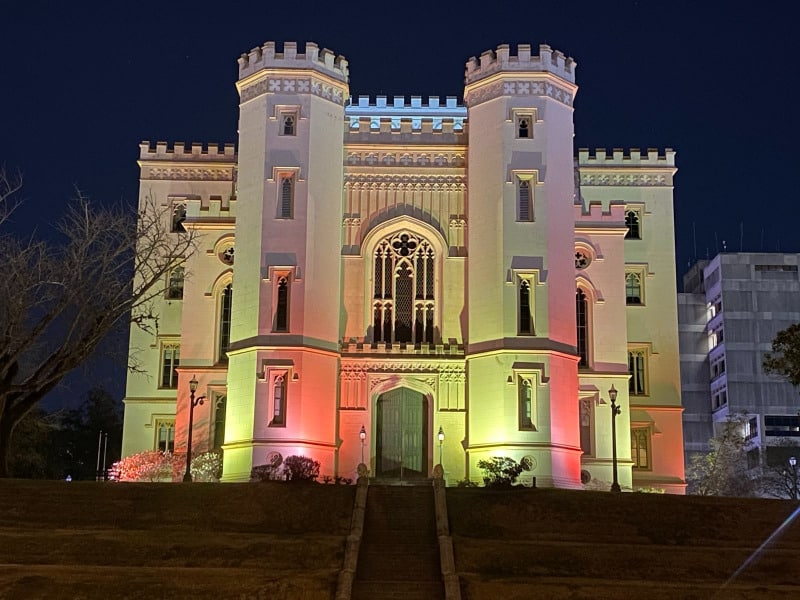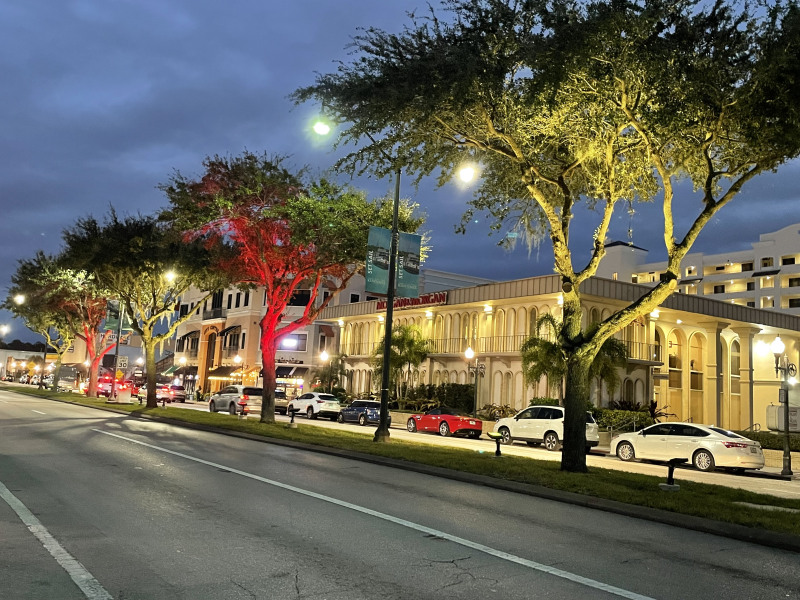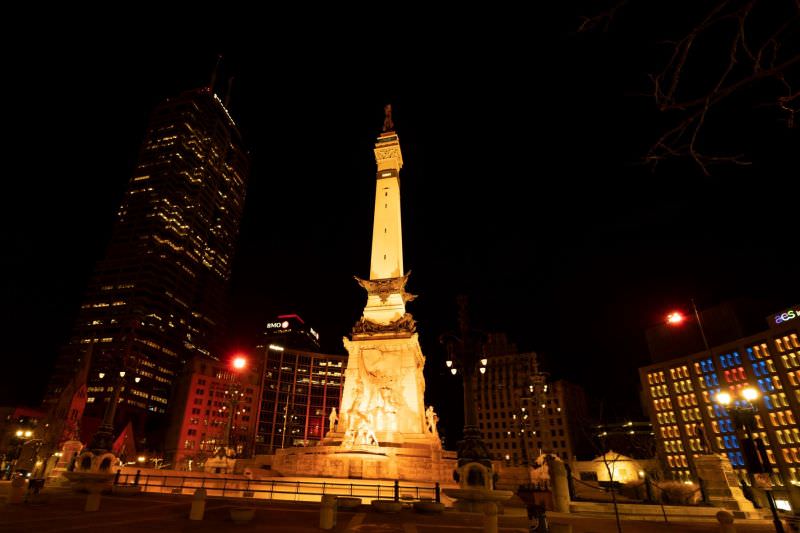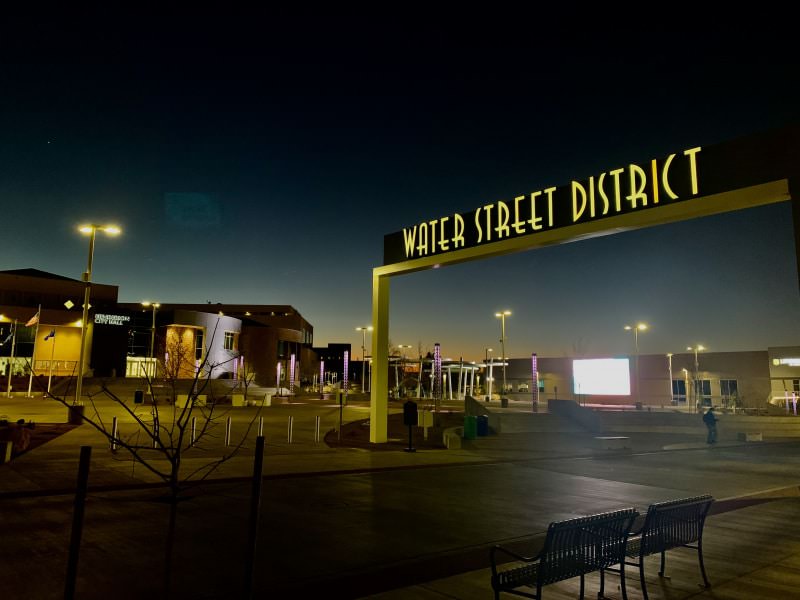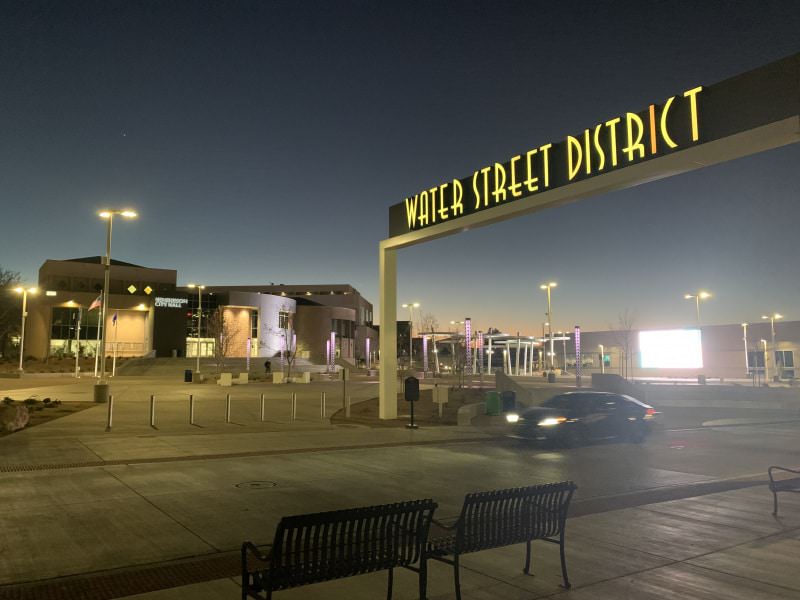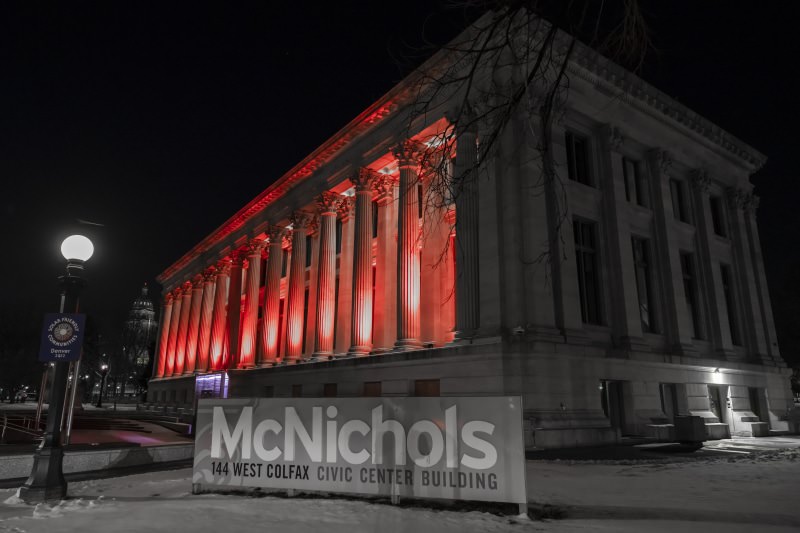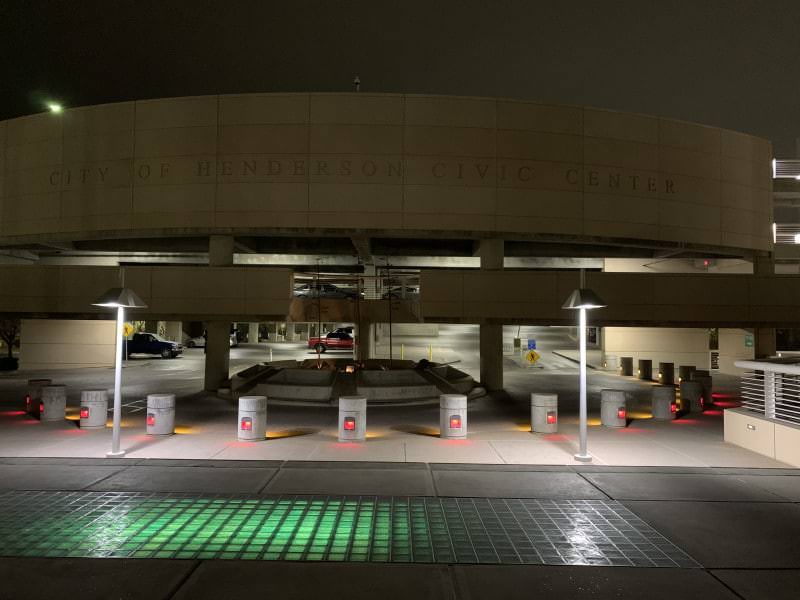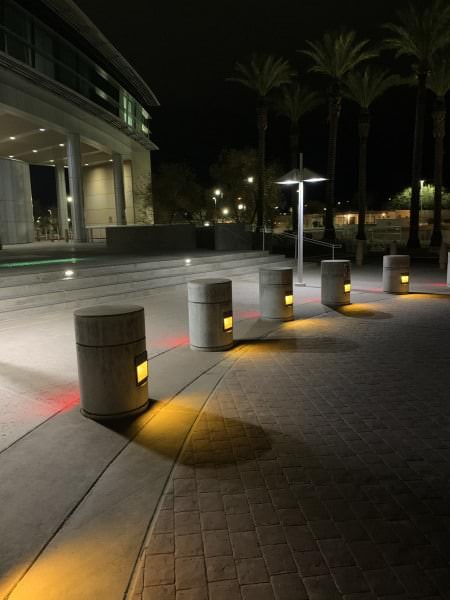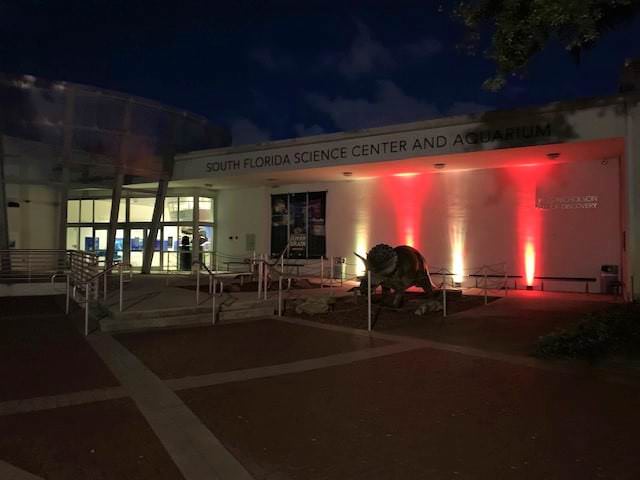Posted on Modified on Posted by National School Choice Week Team
Everything Parents Need to Know about Georgia’s Promise Scholarship
K-12 educational opportunities are expanding in the Peach State!
Georgia has paved the way for greater educational opportunities by passing the Georgia Promise Scholarship Act. This revolutionary bill will create a new scholarship program to expand education options for Georgia students. Launching in 2025, this program will allow eligible families to receive funds amounting to $6,500 in an online savings account to pay for tuition, homeschool expenses, and other personalized expenses.
Georgia is the third state to pass an education savings account law in 2024, joining 15 other states that have either launched or are in the process of launching an education savings account program!

What is the Georgia Promise Scholarship Act?
The Georgia Promise Scholarship Act will be the state’s first education savings account program for students whose neighborhood public school is not meeting their needs. The new Promise Scholarships will provide up to $6,500 per student per year for eligible education expenses in an alternative learning environment. With eligible education expenses ranging from private school tuition fees to tutoring costs, the Promise Scholarship Program will give thousands of students more opportunities to find an education that challenges them and meets their needs.
Who is eligible to apply for a Georgia Promise Scholarship?
Unlike some ESA programs in other states like Arizona and Utah, the Georgia Promise Scholarship program will not be universally available. However, more than half a million students statewide will be eligible to apply.
To qualify for a Promise Scholarship Account, students must meet certain criteria:
- Students must be zoned into the lowest-performing 25% of Georgia schools (you can check a map of Georgia’s lowest-performing public schools at the Georgia Center for Opportunity)
- Students must have been enrolled in such a school for at least one year (two consecutive semesters) or be entering kindergarten
- Student’s parents must have been Georgia residents for at least one year (unless they are active duty military service members stationed in Georgia within the previous year)
Priority will be given to students whose parents earn less than 400% of the federal poverty line (about $120,000 a year for a family of four in 2024); however, this is not a requirement to qualify.
Currently, the Promise Scholarship program has a funding cap of 1% of public school funding. If fully funded at this level, it could provide scholarships to over 21,000 students.
What are eligible educational expenses for the Georgia Promise Scholarship program?
The Georgia Promise Scholarship Act lays out seven different categories of educational expenses. These are:
- Tuition, fees, and required textbooks for eligible core courses and eligible CTAE courses at a participating school, accredited community college or postsecondary education institution, or nonpublic online learning program or course;
- Tutoring services provided by an educator certified by the Professional Standards Commission;
- Payment for purchasing a curriculum, including any supplemental materials required;
- Services from a physician or therapist, like occupational, behavioral, physical, or speech-language therapies;
- Up to $500 / year to a fee-for-service transportation provider for transportation to or from a participating school or service provider;
- Fees for the management of account funds
- Other expenses are authorized by the State Board of Education or the education savings authority, and a majority of the parent review committee authorizes individual education expenses.
It’s worth pointing out that the bill calls for a parent review committee to help determine what should be counted as qualified education expenses. This committee will help the education savings authority by reviewing purchases and service provider applications.
Additionally, students participating in the program will be required to take a national norm-referenced test or state assessment test. The education savings authority will collect this data and other data, such as the graduation rates of participating students, to evaluate the program.
When will Promise Scholarships be available?
The Georgia Promise Scholarships will be open for the 2025-26 academic year. However, the scholarship program has a 10-year expiration date, which means that it will sunset on June 30, 2035.
How will families apply for and use the ESA?
The Education Savings Authority will be establishing some guidelines for this program, and families will have to fill out an application form to participate. The application periods will open every quarter.
Families who participate in the program will be required to ensure that their child receives an education in reading, grammar, mathematics, social studies, and science. They will also have to agree not to enroll their child in a public school, except for part-time enrollment in a college and career academy, which is allowed.
If a family is approved, they will receive funds every quarter, which they can use to pay for their child’s education expenses. This money is non-taxable and can only be used for educational expenses.
If the money provided by the program is not enough to cover all of the expenses, the family will have to pay the rest. However, some schools may offer additional scholarships or discounts to help with the costs.
If any money is left over at the end of a school year, up to 50% of it can be rolled over to the following year. However, if the account is inactive for two years or the student graduates, the account will be closed.
Families will be able to use a system to direct the money to their schools or service providers. The program aims to limit the amount of money families have to pay out of pocket, but some expenses may require pre-approval or reimbursement.
What else do we know about the Promise Scholarships?
Many families may choose to use their Promise Scholarship to attend a private school. Families will be able to select from any private school that opts to participate in the program. Georgia has many diverse private schools across the state. According to EdChoice, 79% of Georgia students live within 10 minutes of a private school, and more than 95% live within a 20-minute drive.
If a school requires a partial tuition payment before the start of the school year to reserve space for a student, the education savings authority can make such a payment, as long as it is no more than $1,000. That amount will then be deducted from the student’s first quarterly payment.
The bill requires participating schools to be accredited or in the process of obtaining accreditation. Schools will not be required to change their creed, curricula, employment policies, or admission policies to participate in the program.
In the meantime, parents should…
The new scholarship program in Georgia is still being developed, which means there might be updates before its official launch. If families want to be fully prepared for any private school choice program launch, there are a few important things parents should consider.
Before starting any application, parents should:
- Check out the list of participating schools and providers. Evaluate whether they would meet your children’s needs. Inquire whether schools or providers have any availability. This list will be available shortly before the application window opens.
- Familiarize yourself with the eligibility requirements. Ensure that you meet all requirements, including residency, age of the beneficiary, and income restrictions.
- Estimate your child’s future education expenses, considering factors such as tuition, fees, books, supplies, and other related costs.
- Stay informed about any updates or announcements regarding the launch of the state program by subscribing to newsletters, following relevant government agencies or organizations on social media, and regularly checking official websites for updates.
- Gather any required documentation for you and your children, such as proof of residency, identification documents, and social security numbers.
Other school choice options in Georgia
Georgia offers various other school scholarships and choice opportunities. For private schools, it provides a tax-credit scholarship funded by private donations; this currently serves nearly 20,000 students. Georgia also has a voucher program for students with special needs.
The biggest difference between these existing programs and Georgia’s Promise Scholarship program is that the Promise Scholarships allow families more flexible options for customizing their child’s learning.
It’s important to note that students cannot participate in the Georgia Special Needs Scholarship Act and the Promise Scholarship at the same time.
In addition to private school choice options, Georgia families have a range of educational choices, including traditional public schools, public charter schools, public magnet schools, online learning, homeschooling, microschooling and mix-and-match learning.
Other public school expansions
The new bill aims to clarify the rules for public school students who wish to make an inter-district transfer, which refers to transferring students between a public school in one district and a public school in another. This bill will make it easier for Georgia students to choose the public school that best fits them, even if they live in a different district. Additionally, the bill increases tax credit opportunities for donations made to public schools.
What are people in Georgia saying?
Georgia families are thrilled about the new Georgia Promise scholarship, with increasing interest in non-traditional education across the state, this scholarship is a game-changer. It provides more opportunities and flexibilities for various educational paths, including private, microschooling, and homeschooling.
As the current landscape of education is rapidly changing, more and more families are exploring alternative avenues for learning. According to estimates from the National Microschooling Center, around 1.5 million K-12 students are enrolled in microschools nationwide. In Georgia, homeschooling accounts for 4.1% of all K-12 students, a number that jumped from 59,958 in 2015 to over 91,000 students in 2022. Against this backdrop, the Georgia Promise scholarship marks a significant turning point, particularly for those who are seeking non-traditional education options.
With Georgia’s Promise Scholarship in place, Georgia families can now pursue a wide range of educational paths that best suit the needs of their children.
Learn more
Over 900,000 students nationwide use school choice programs to personalize their education. As Georgia’s new scholarship program is established, we expect to receive more details. Stay tuned for further updates!
If you’d like to learn more, you can keep an eye out for updates at Georgia’s Department of Education, Georgia Student Finance Commission, and GeorgiaCAN.

